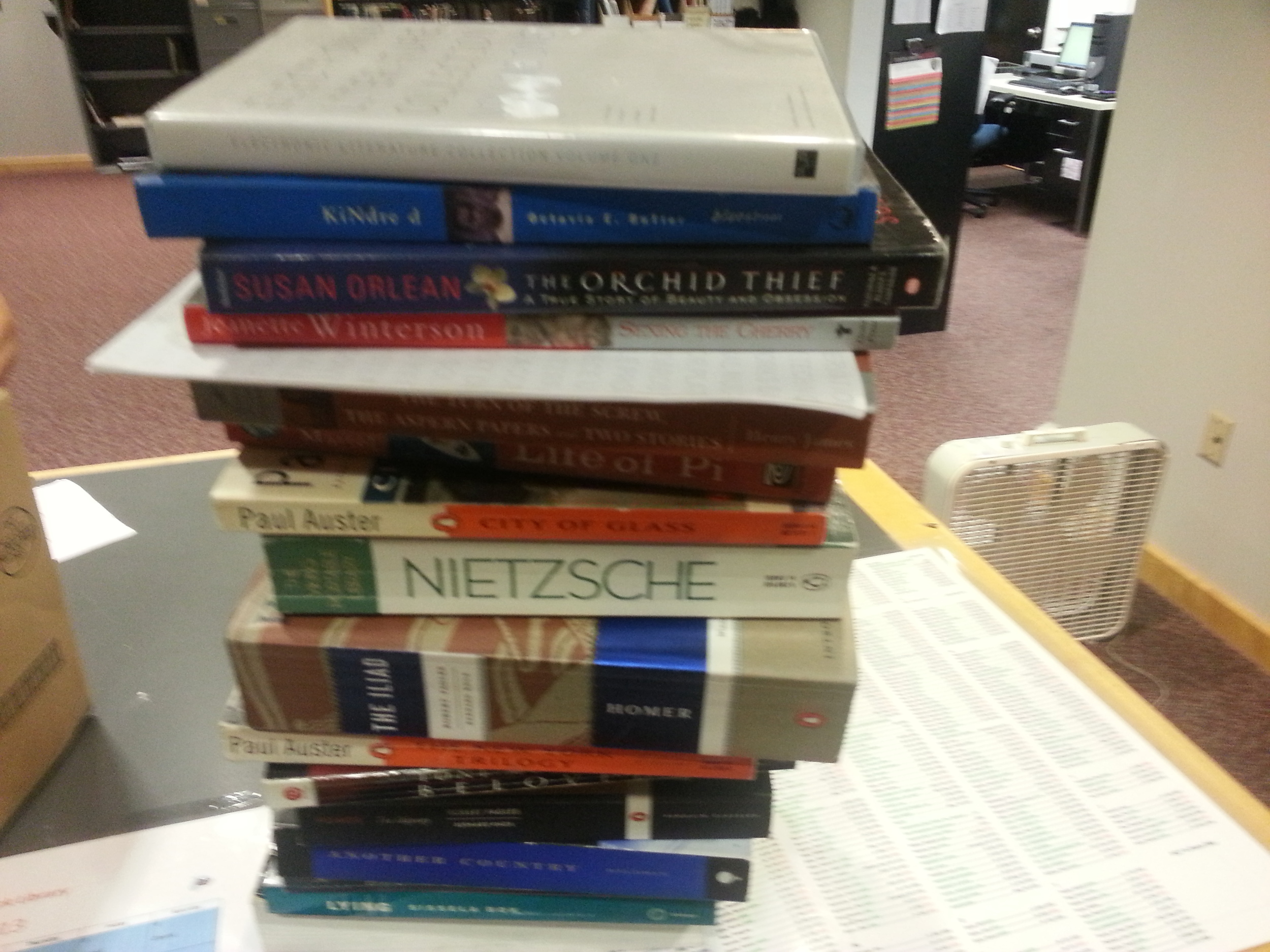Prof Hacker’s end of semester checklist post suggested writing some sort of “End of the Semester Roundup” post so I thought I would write one up. This semester was one of great advancements for me. I taught my first college level courses and had a great time doing so. Originally, my schedule involved teaching two sections of Composition I but during the first week of the semester I ended up adding a section of Composition II as well.
Comp I was a lot of work, but well worth it. I saw a lot of advancement in my student’s work as the semester went on. I also saw a lot if disappointing efforts from others. Teaching writing and grammar also allowed me to sharpen my own skills and talk about some of the adventures I have had over the years as a student and academic. Check out the class weblog for more information.
Composition II was a great joy to teach. I got to teach a lot of my favourite canonical authors like Chopin, Gilman, and Ibsen. An unconscious theme of discussing gender and women’s liberation became a focus of our close readings as the semester advanced through short stories to plays (A Doll House, Othello) and then to poets like Plath and Dickinson. Immediately, a handful of students stood apart from the rest of the class but I also saw many others slowly begin to contribute more and more as they became more comfortable with their own close reading skills. My focus in class was on what my students wanted to discuss. Of course, I would bring lecture notes with ideas I wanted to highlight. However, after our daily, randomly selected, journal readers I would ask the class where they wanted to begin, what they wanted to discuss, and that is where we would start. I could talk for hours about most of the texts we read, but I am more concerned with what my students wish to discuss.
One student in particular started the semester off very slowly only to eventually be the first to raise their hand almost every class. Another only contributed on Fridays, somehow, but always blew our minds with their ideas. Almost every student in class had a day where they stood out and shone brighter than anyone else.
The week of my classroom observation by Dr. Alexander coincided with my favorite week of the semester: the week we discussed (post)modern authors like Borges, Coover, and Auster. I was very impressed with my students and their ability to tackle these difficult texts. I can’t wait to teach 102 again and hope I get a chance to pick up a section in the spring. Check out our course weblog.
This semester I ran our course weblogs on WordPress and am thrilled with the results. I have run WP on a number of websites, including this one, for the past four years and couldn’t be happier with the results. In the spring I think I am going to try the dreaded Blackboard for my classes. As an offsite alternative, I believe I am going to wade my toes into the world of Drupal as well. I am going to spend some time over break considering my options.
I also guest lectured for two classes in Dr. McCadden’s upper level class ENG203 The Origins of Literature. I presented two lectures: “Telemachus & The Search For the Ideal Son in Classical Greek Literature” and “The Odyssey & Nonlinear Reading.”
Another project I am going to finish over break is the long-awaited draft of my article on Shelley Jackson for The Quarterly Conversation. I was supposed to have this completed for the winter issue, but the hectic nature of the fall semester got in the way. Veronica Esposito was gracious enough to give me an extension. I’m hoping to have something to him early in the new year.
I have a handful of journal article proposals that I need to send over break as well. A few of them are spinoff projects from my MA thesis and others are ideas that I have brewed for a period of time. Hopefully some of them will be publishable.
in the spring, currently, I am teaching two sections of Comp I. One is MWF, the other TT. This isn’t the most ideal schedule, but hopefully I will pick another Comp I, a Comp II, or another class. I am very happy to have a few weeks off to get some of my work done and prep for the spring. However, I am also excited to get back to Burlington and begin teaching again.
